Memorial Plaques
Honoring Our Ancestors and Making Amends
- Plaque of Remembrance—Honors Enslaved African Ancestor
- Epitaph of Atonement—To make amends for ancestors who perpetrated and perpetuated systemic slavery of African people in the US (i.e. Blackbirds—hunters of fugitive enslaved people, plantation owners, slave patrols, “patrollers” or “patty rollers”—organized groups of armed men who monitored and enforced discipline upon enslaved Africans in the antebellum U.S. southern states).
- Epitaph of Achievement—To acknowledge ancestors who opposed the enslavement of African people, an enslaved ancestor who excelled in the midst of and in spite of slavery (Frederick Douglass, Shadrach Minkins), Abolitionists (Isaac Hopper—a Quaker, John Brown, William Still), enslaved ancestors who revolted and resisted (Nat Turner, Harriet Tubman).
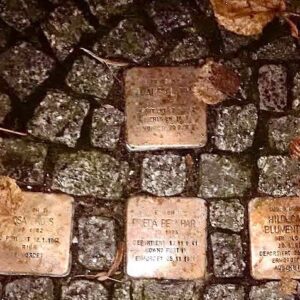
From an Isabel Wilkerson Instagram post: During this time of thanksgiving, my deepest gratitude to every reader who has taken Caste: The Origins of Our Discontents into their hearts and shared what they have learned from it — like @brigittesbookshelf who, after reading Caste, railed against the differences in how our country and Germany address their fraught histories.
For one, there are the stumbling stones, known as Stolpersteine —the brass squares inscribed with the names of Holocaust victims, embedded in the cobblestones outside the last known residences of those abducted. I will never forget seeing the stones for the first time in Berlin as I researched this book, how transfixed I was by them and by so much else I saw in that haunted land.
Grateful for readers who now see the deep and disturbing connections between Nazi Germany and Jim Crow, as documented in Caste. My years-long journey felt like an underground mission, linking a disparate history to better understand our own. Because we haven’t addressed our past, as has Germany, we still live with the consequences.
From @brigittesbookshelf: “Rather than monuments to lives lost and stolen…, we cling to Confederate monuments, name our schools and streets after terrorists, and deny our complicity. [pic 9]
“Caste shook me. The book was unsettling in its effectiveness. Wilkerson argues that America is a caste system…as Nazi Germany and India. The myth of American exceptionalism tries to deny that fact, but in doing so, we are all the more culpable for its repercussions. Wilkerson makes her point through relentless analysis and data, but also through vignettes that serve as metaphors for the systems she critiques…. [S]he forces us to dwell in the similarities between eras, including our current one.
“Wilkerson’s argument is compelling throughout, but her section about the backlash against Obama was most powerful to me and helped me better understand the forces operating today. She argues that we must reckon with caste, which unlike race is the only sufficiently comprehensive explanation for the stratification and oppression built systemically into our society. This book is essential.”
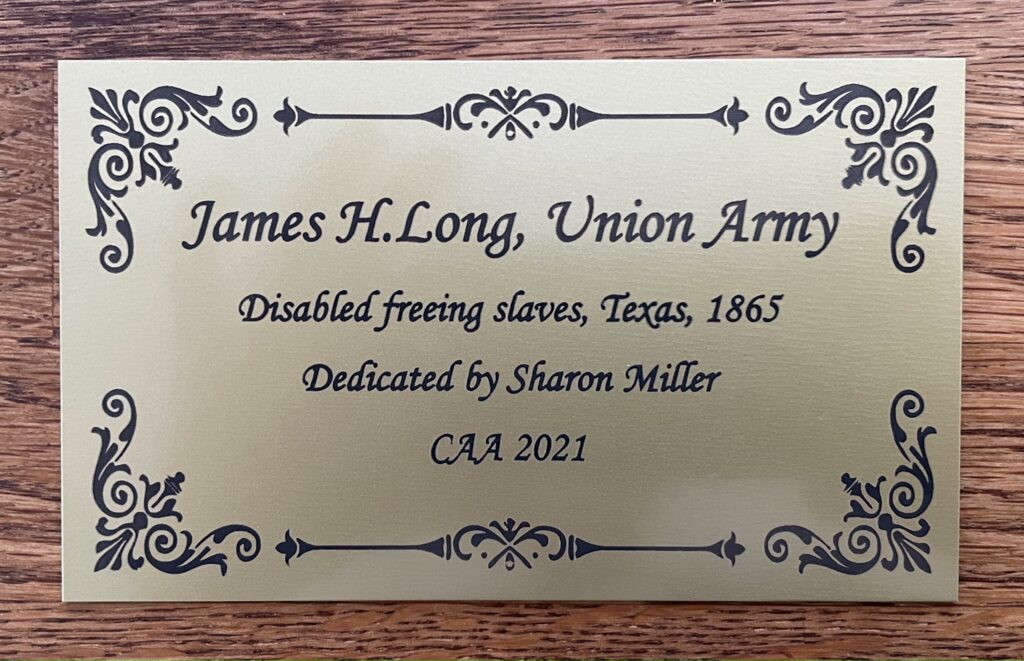
My great-grandfather James H. Long served with the Illinois Volunteers during the Civil War. His health was broken as a result of suffering from malaria, scurvy, and break-bone fever during the last months of the war in Texas. He died in a Veteran’s Home in Anacortes, Washington. By Sharon Miller
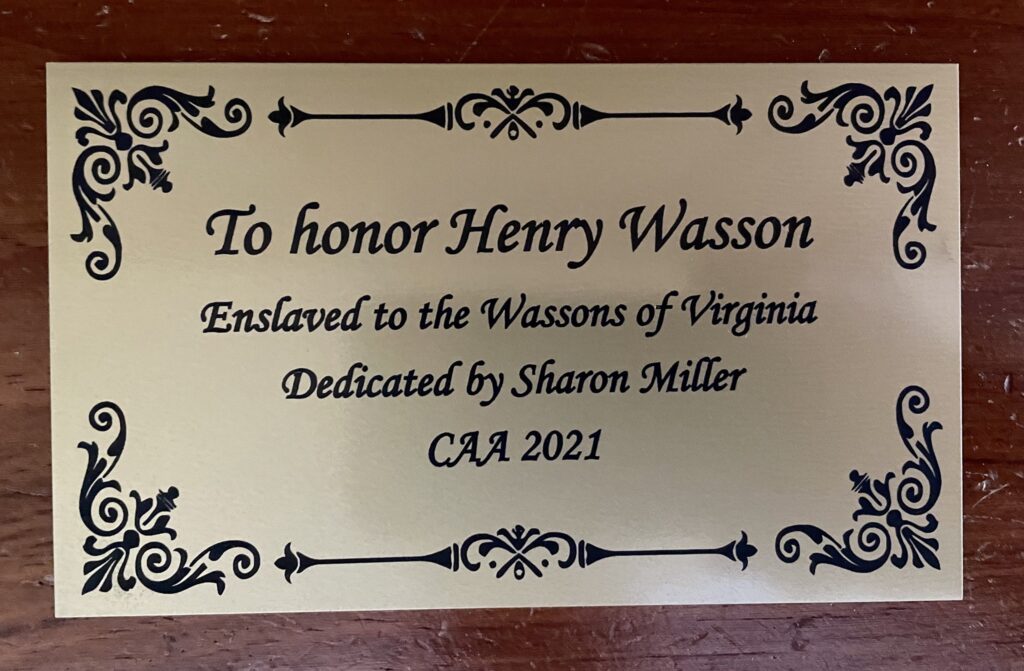
This is the plaque honoring an elderly Black man I discovered members of my family had brought with them when they migrated from the South where he was enslaved to Illinois. By Sharon Miller
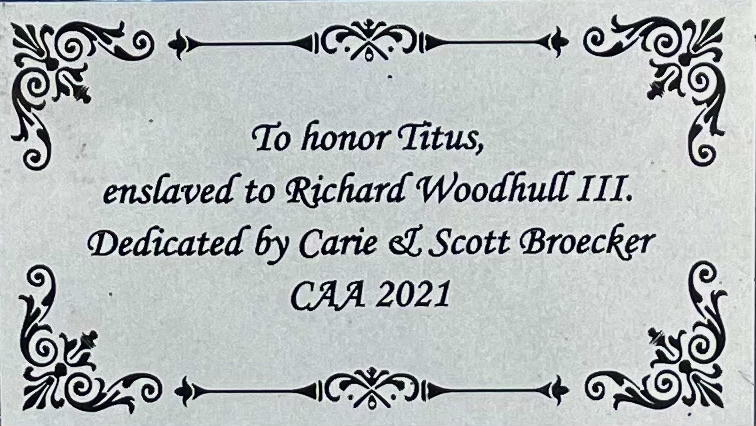

This is out in front of our house. I hope to find out the names of the slaves that belonged to William McDowell. My Mormon cousin recently told me that this ancestor had slaves, probably in Kentucky. I will make a new plaque when I have more information. By An McDowell
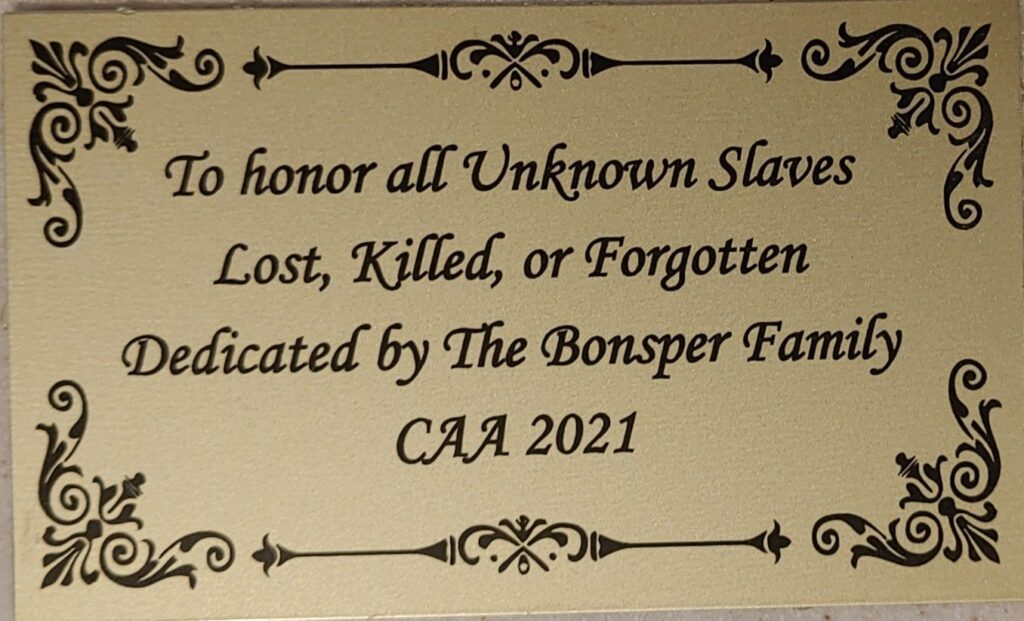
There is the Tomb of the Unknown Soldier in Arlington Cemetery. No such memorial acknowledges the thousands of enslaved persons who worked without pay, lived without freedom and died without a gravestone. My plaque is for them. By Pam Bonsper

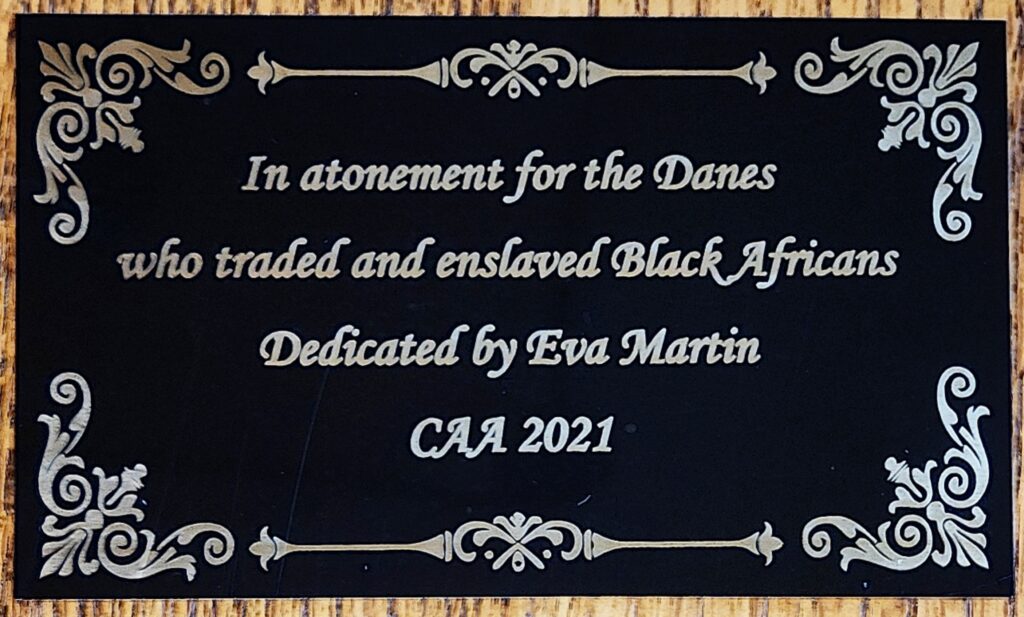
As a child of Danish immigrants, I was steeped in Danish culture and traditions all my life. It wasn’t until my research for my plaque that I discovered that Denmark was involved in the transatlantic slave trade and slavery, primarily from Ghana to the Danish West Indies (now U.S. Virgin Islands). Approximately 100,000 to 120,000 Africans were transported between 1733 and 1803 to work on sugar, coffee, and tobacco plantations. Denmark legislated the abolition of the slave trade in 1792, effective 1803, and full emancipation of enslaved people occurred in the Danish colonies in 1848, spurred by colonial unrest.
In 2017, Danish foreign minister, Anders Samuelsen, apologized for the many years of torture and treatment of African slaves. In his apology to the Ghanaian president, Nana Akufo-Addo, Anders claimed “We share a dark history of slave trade – shameful and unforgivable part of Danish history. Nothing can justify the exploitation of men, women and children in which Denmark took part”.
By Eva Martin
